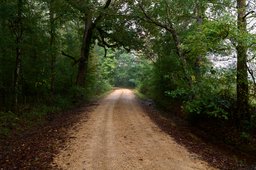Since 1884, The Westervelt Company has demonstrated responsible land use and manufacturing practices that have sustained our company, communities, and the environment. Our diverse businesses have a common goal: stewardship of natural resources for today, tomorrow, and future generations. We regard working forests as an essential contributor to clean air, clean water, and healthy ecosystems, and we demonstrate that the private sector plays a powerful role in conservation and that economic prosperity and environmental conservation are not mutually exclusive.
What we do every day on our lands and in our sawmills provides natural solutions to some of the most significant challenges faced by society today; including climate change mitigation, air and water quality, and biodiversity. Our science-based practices meet or exceed legal, regulatory, and voluntary forest and fiber certification standards and are a key factor in our successful partnerships with stakeholders as we actively seek continuous learning that informs our sustainability mission.
We recognize that biodiversity and wildlife have no borders. Through sustainable forest management practices and scientific ecological restoration, Westervelt provides essential habitat for common, at-risk, and threatened and endangered species. We take great care to manage our lands in a way that ensures the conservation of sensitive ecosystems, while at the same time providing premium products and services to our diverse customers.

